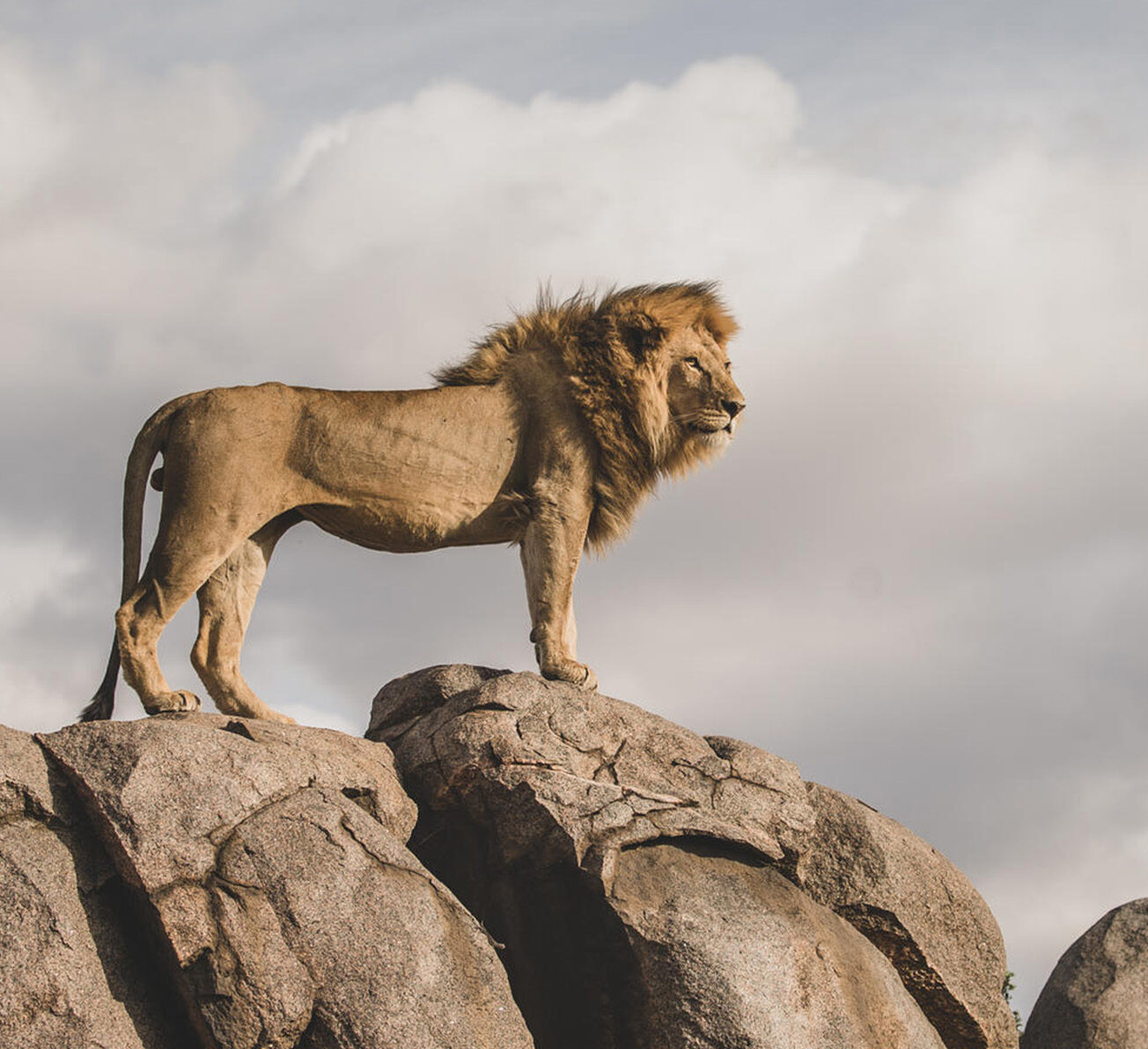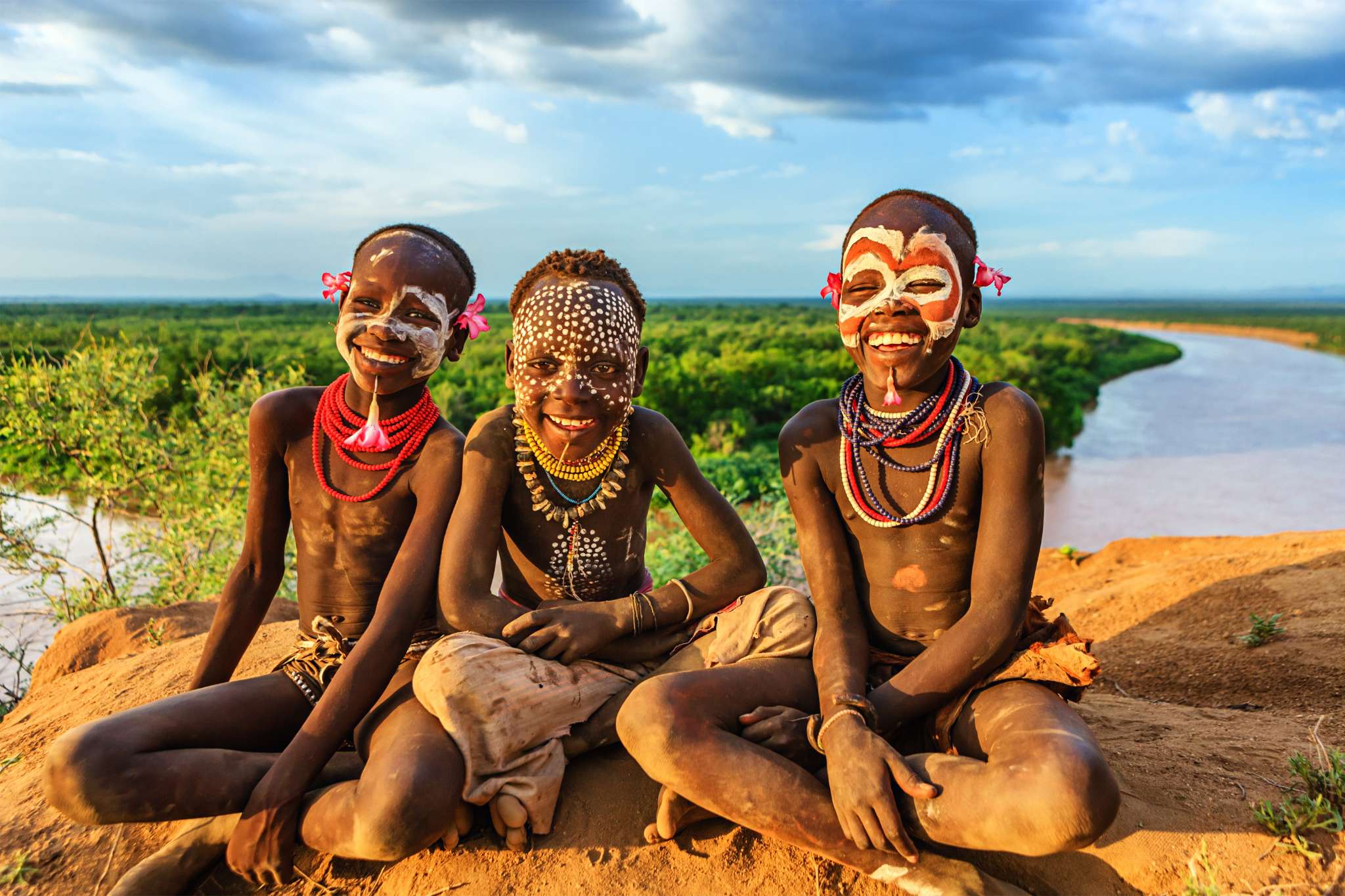
Ethiopia
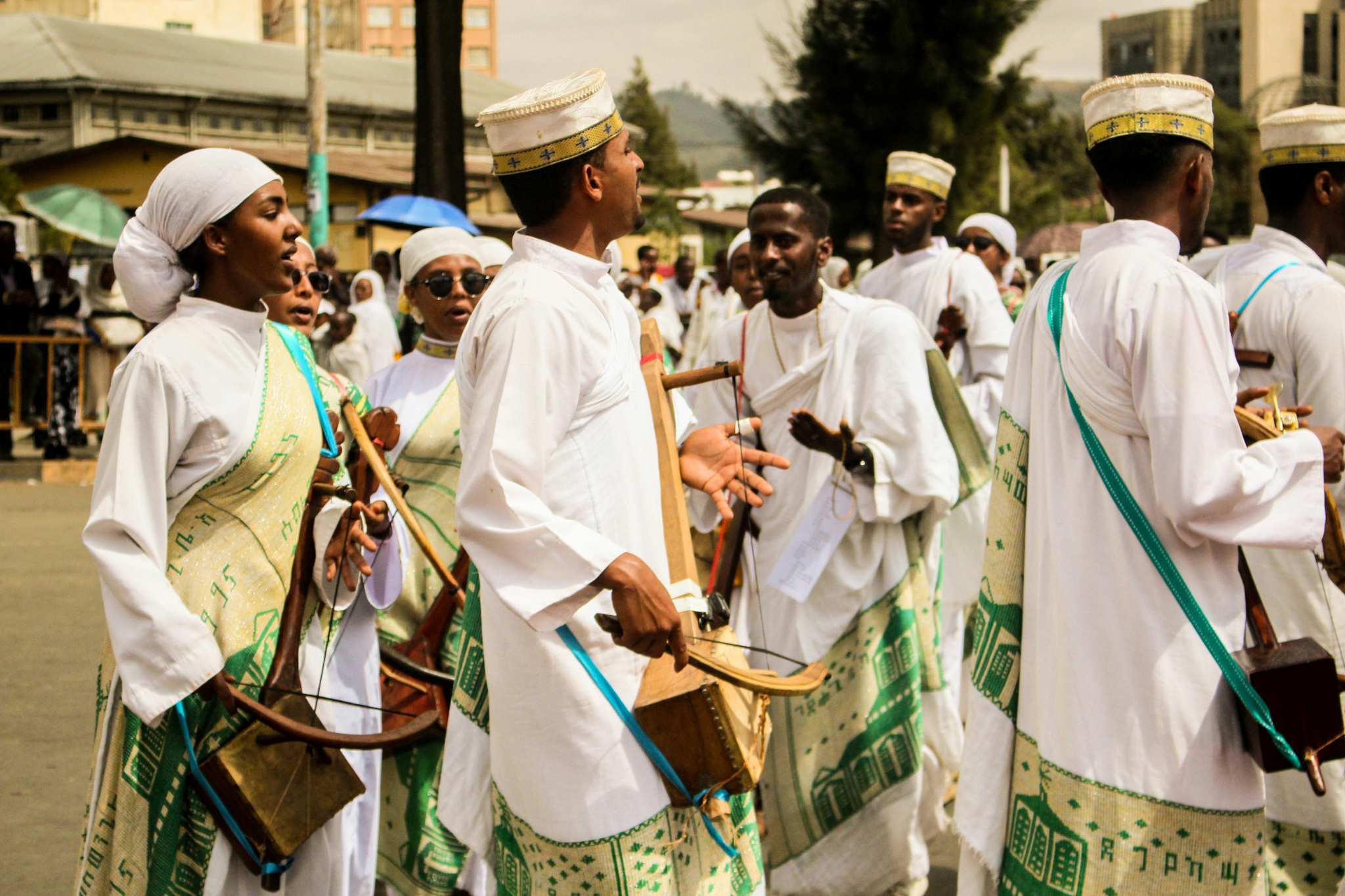
Ethiopia Safari Tours & Holidays
Ethiopia offers travellers a journey unlike any other in Africa. This is a country that has preserved its unique identity through millennia, remaining distinct from its neighbours and untouched by many of the cultural changes seen elsewhere on the continent.
Ethiopia’s ancient script, calendar, and religious traditions reflect a deep and rich history. The Ethiopian Orthodox Church, one of the oldest Christian institutions in the world, dates back to the 4th century AD, predating many Western churches. Ethiopia is also home to longstanding Muslim communities and the historic Jewish community known as Beta Israel.
Visitors to Ethiopia will discover a land of diverse peoples and landscapes, where history is alive in the rock-hewn churches of Lalibela, the castles of Gondar, and the vast Simien Mountains. The country’s resistance to colonisation is a point of pride, symbolised by the decisive victory at the Battle of Adwa in 1896, which preserved Ethiopian sovereignty.
Our Ethiopia safari tours and holidays showcase this rich heritage alongside exceptional wildlife and dramatic landscapes. From the deserts of the Danakil Depression to the highlands and Rift Valley lakes, your journey will reveal a side of Africa that is both timeless and unforgettable
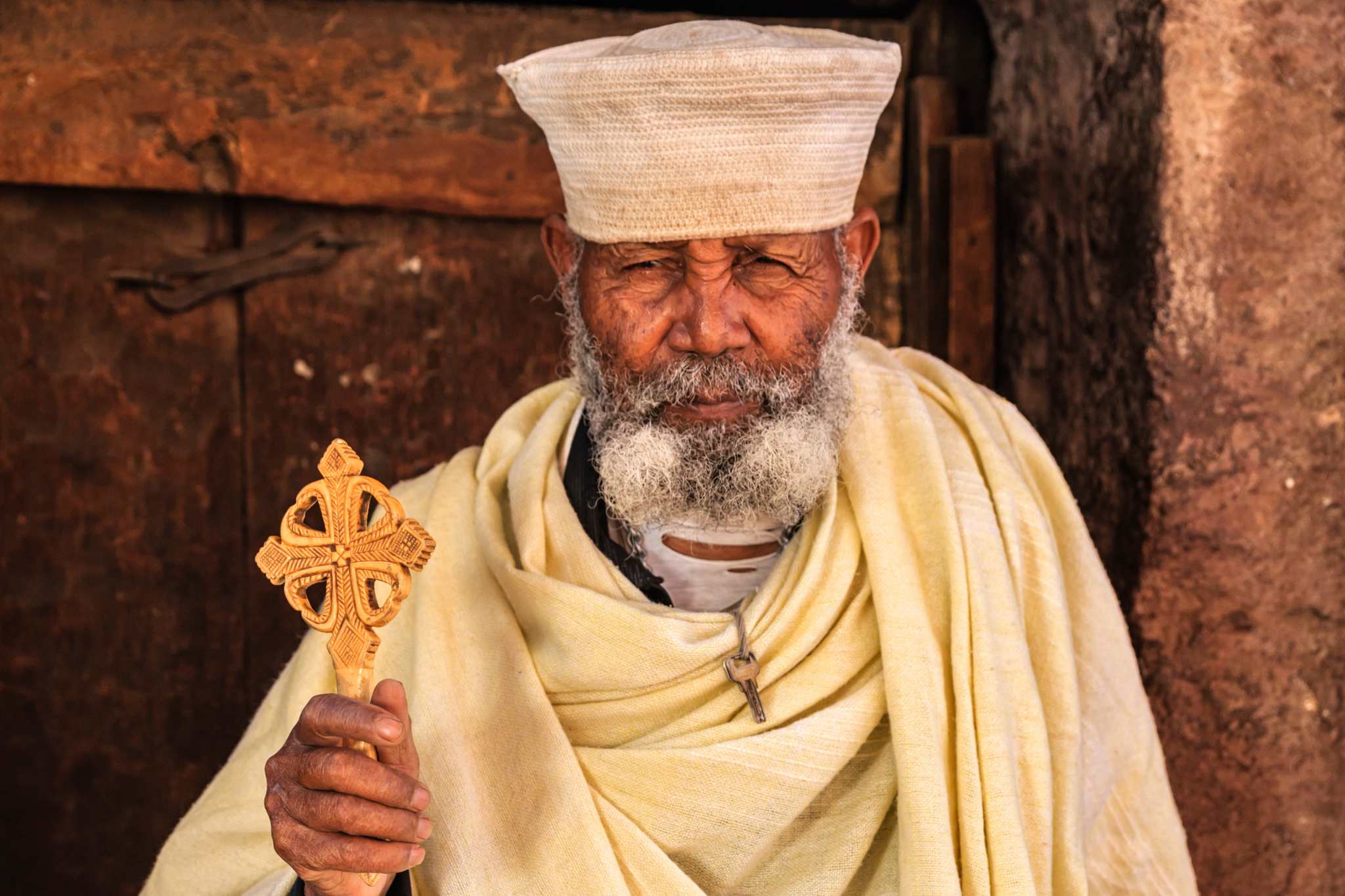
Ancient Secrets & Diverse Wonders
Ethiopia holds some of the richest and most extensive historic sites in Sub-Saharan Africa, with experts estimating that only a fraction of its archaeological treasures have been uncovered. The Awash River valley is world-famous for fossil discoveries such as Lucy (3.2 million years old), Selam (3.4 million years old), and Ardi (4.4 million years old). The Afar Region remains a focal point for paleo-anthropologists, with ongoing excavations from institutions around the globe, reinforcing Ethiopia’s role as a key site in understanding human origins.
The country’s landscapes are incredibly varied, ranging from tropical rainforests and high-altitude moorlands with unique Afro-alpine plants, to expansive lakes, savannah plains, and arid deserts. Elevations vary dramatically, from 120 metres below sea level in the salt flats of the Danakil Depression to 4,624 metres at Ras Dashen, Ethiopia’s highest peak in the Simien Mountains.
Ethiopia’s cultural diversity is equally striking, home to over 80 ethnic groups and as many languages, offering visitors a rich tapestry of traditions, music, and festivals to explore alongside its natural and historical wonders.
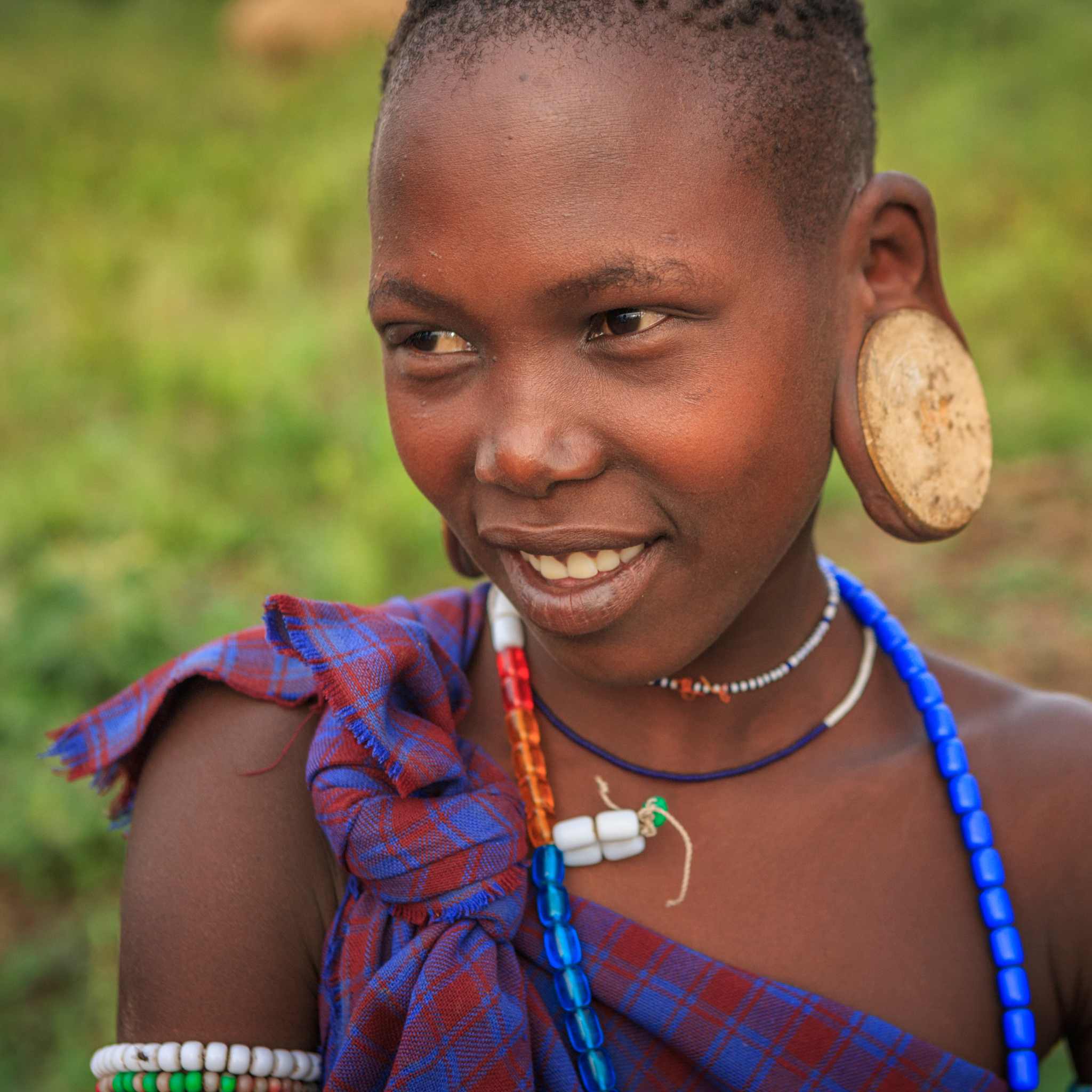
- Full Country Name Ethiopia
- Area 1,112,00 sq km
- Population 100.6 million (UN 2015)
- Capital and largest City Addis Ababa
- Borders Kenya, Somalia, Sudan, South Sudan, Eritrea Religion and Djibouti
- Religion Majority Christian, Muslim
- Time Zone EAT (UTC +3)
- Languages Amharic
- Country Dialling Code +251
Ethiopia highlights
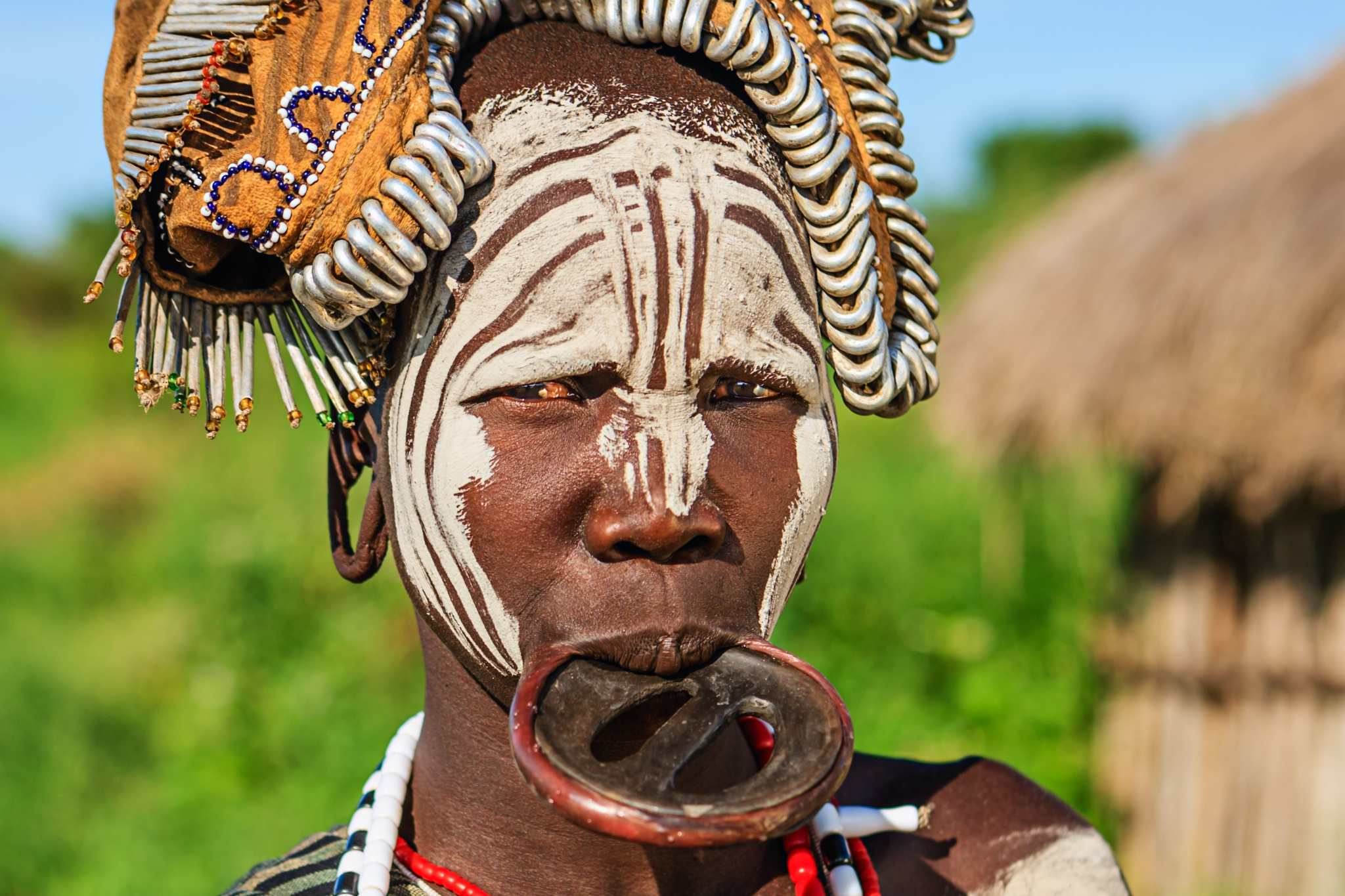
Omo Valley
The Omo Valley is one of Ethiopia’s most culturally rich regions. Tucked into the country’s southwest, it is home to a remarkable diversity of communities, each with their own traditions, languages and ways of life. Markets buzz with colour, body adornment is a form of expression, and age-old ceremonies mark the rhythms of life. The landscape shifts from wide river plains to forested hills, but it is the human story that defines this place. Travelling through the Omo Valley is a chance to connect with cultures that have thrived for centuries in a world shaped by community, resilience and identity.
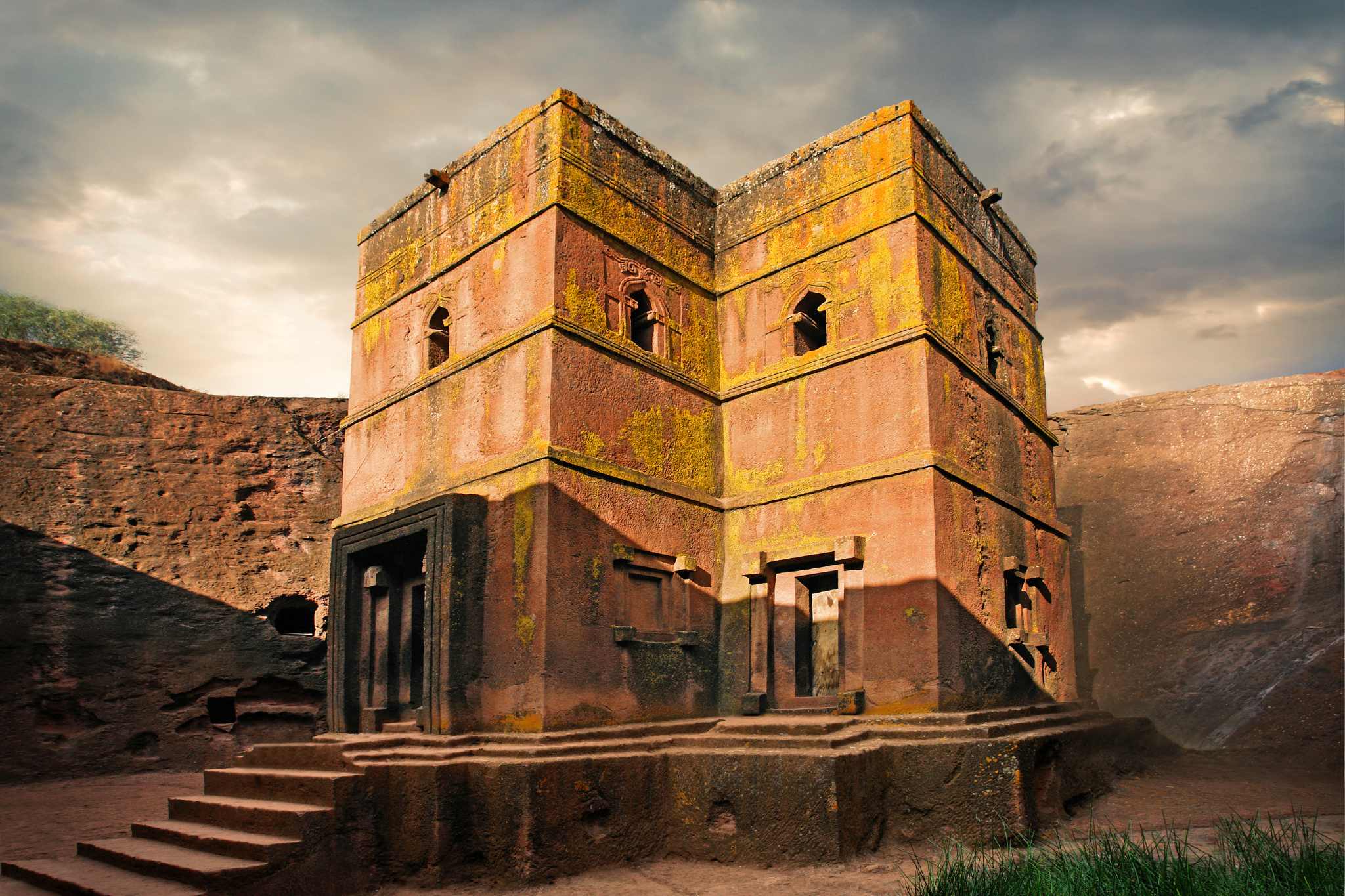
Lalibela
Lalibela is renowned for its 12th and 13th-century rock-hewn churches, carved directly into volcanic rock. These UNESCO World Heritage Sites are still active places of worship and pilgrimage, offering a unique glimpse into Ethiopia's deep Christian heritage. Visitors can explore the main cluster of churches and nearby sites like Ashetun Mariam and the cave church of Yemrehane Christos.
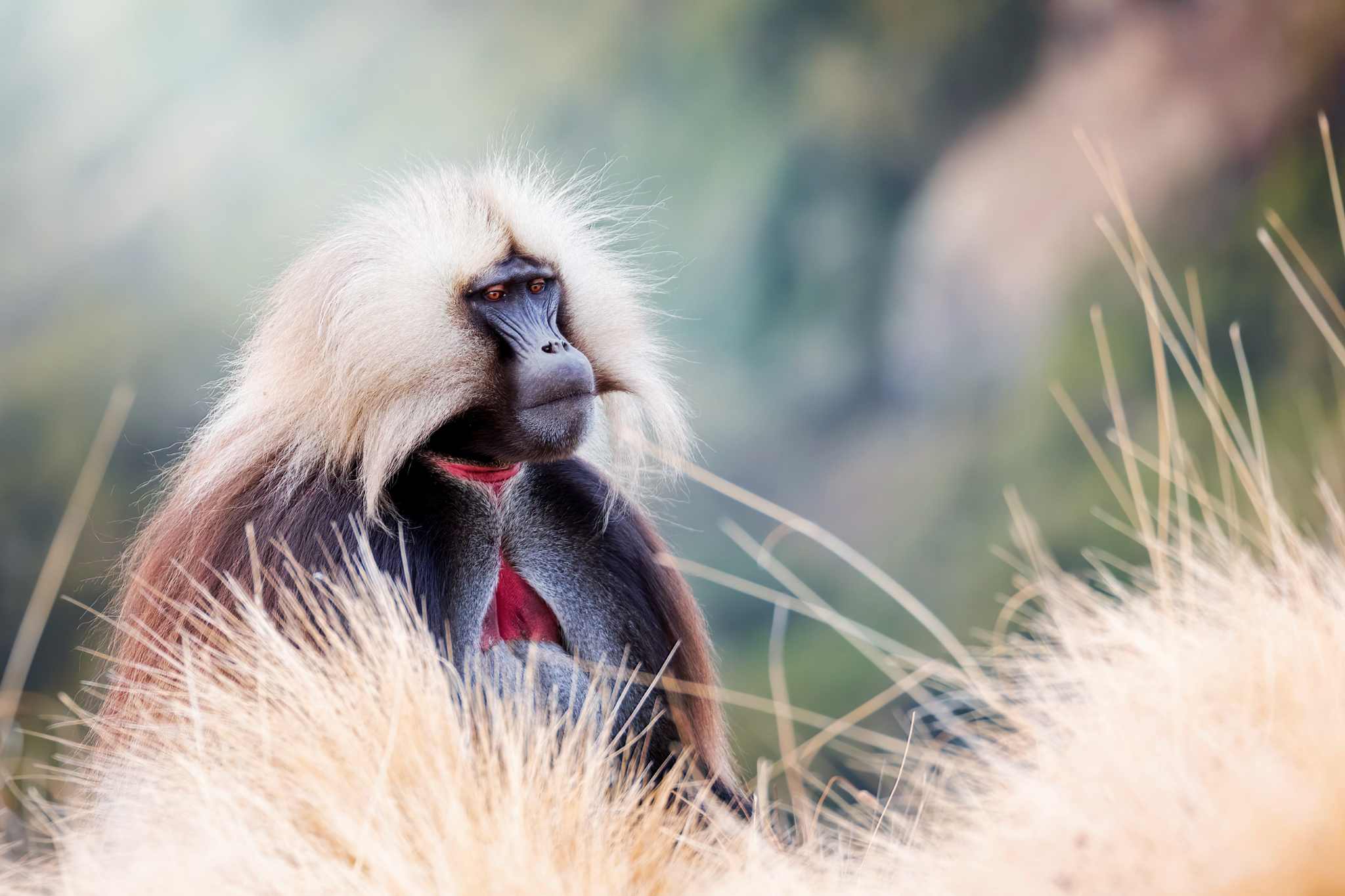
Simien Mountains
The Simien Mountains are one of Africa’s most dramatic landscapes. Carved by time and shaped by deep valleys and towering peaks, this highland region in northern Ethiopia feels wild and remote. Jagged escarpments drop into sweeping gorges while open plateaus stretch out beneath vast skies. It is home to rare wildlife found nowhere else, including the gelada monkey and the Walia ibex. Villages cling to hillsides and ancient footpaths wind through farmland and cliffs. The Simien Mountains are not only a place of raw beauty but a journey into the heart of Ethiopia’s highlands.
Essential trip information
-
Accommodation
-
Hotels
Hotels are found throughout the country, especially in cities like Addis Ababa, Bahir Dar, Gondar, and Axum. In the capital, you will find international hotel chains alongside well-run local options. In regional towns, hotels are generally smaller, with en-suite bathrooms and basic amenities. Some have on-site restaurants and rooftop terraces with views over the surrounding landscape.
Lodges
In areas near national parks or natural attractions, lodges are often the best option. These range from rustic mountain lodges in the Simien Highlands to lakeside stays near Arba Minch and the Rift Valley. Some are built using local stone or wood, while others take an eco-conscious approach with solar power and natural materials. Most lodges offer private rooms, hot showers, and a central dining area. They are usually well positioned for walks, wildlife, and cultural excursions.
Boutique & Heritage Hotels
Certain cities have small hotels that reflect the character of their surroundings. In places like Lalibela or Gondar, you may find a hotel built in a traditional tukul style, or one that uses local craftsmanship in its design and decor. These boutique properties are generally more intimate, often with fewer rooms and a relaxed atmosphere. Many are family owned and run, which adds a personal touch to the stay.
Eco-Lodges and Community-Based Accommodation
In areas like the Omo Valley or the Bale Mountains, a few eco-lodges and community-run properties are available. These are usually simple but well placed to explore the surrounding nature or engage with local culture. Accommodation might include tukul huts or rooms built with natural materials. Electricity and hot water are often solar-powered, and meals are typically homemade using local ingredients.
Note
Ethiopia’s accommodation varies across regions, from modern hotels in the capital to small guesthouses and scenic lodges in the countryside. While infrastructure continues to improve, accommodation in remote areas tends to be simple but full of character. What Ethiopia lacks in luxury it often makes up for in atmosphere, cultural connection, and unforgettable settings.
While accommodation in Ethiopia ranges from simple to stylish, availability can be limited in some areas. Changes may occasionally be required due to local conditions, and where this happens, we aim to inform you as early as possible. For more information about the places you will be staying, please refer to your itinerary or speak with one of our Africa specialists.
-
Clothing
-
General Information
In Ethiopia, there’s no need for formal clothing, and we recommend packing light. Casual, modest attire is most practical, especially when visiting religious sites or rural communities where conservative dress is expected. Both men and women should avoid wearing shorts, sleeveless tops, or anything overly tight or revealing. Women may be asked to cover their heads when entering churches or monasteries, and everyone must remove their shoes before entering these spaces.
Lightweight layers in breathable fabrics work well for the climate. Daytime temperatures can be warm, while early mornings and evenings—especially in the highlands—can be cool. A fleece or light jacket is recommended, along with a raincoat during the wet season.
Comfortable walking shoes are essential for exploring historical sites and uneven terrain. A wide-brimmed hat and sunglasses will help with sun protection. Long-sleeved shirts and trousers are useful in the evenings to help protect against insect bites. In remote areas, laundry facilities may be limited, so consider this when planning what to bring.
Packing List
Essentials:
- Hat for sun protection
- Reusable water bottle
- Good quality, preferably polarised sunglasses
- Torch
- Camera, charger, and adaptor
- Travel adaptor for charging devices
- Spare glasses (if you wear contact lenses)
- Comfortable walking shoes, trainers, and sandals
- Shorts/skirts
- Long trousers/slacks
- T-shirts/long-sleeved cotton shirts for cooler evenings
- Sweater/fleece/raincoat for early morning and late afternoon game activities
- Warm jacket, beanie, gloves, and scarf if you’re heading to the mountains
- Earplugs
Health and Safety:
- Basic medical kit (aspirins, Elastoplast, Imodium, antiseptic cream, etc.)
- Malaria tablets and antihistamine cream
- Insect repellent containing DEET (though many lodges provide sprays)
- Protective suntan lotion, especially for pale and sensitive skin
- Tissues or ‘wet wipes’
- Lip balm
-
Communication
-
Ethiopia has a growing mobile and internet network, with reliable coverage in major cities, towns, and popular tourist areas. International calls can usually be made from hotels, although using mobile apps over Wi-Fi is often more cost-effective.
Travellers can use roaming if their phone supports it, but charges may be high. Local SIM cards are widely available at airports and in cities, while eSIMs are increasingly supported, offering a convenient way to access local data without swapping physical SIM cards.
Coverage can be limited in remote regions, including national parks, highlands, and rural areas. Many hotels and lodges provide Wi-Fi, though signal strength may vary, so it’s advisable to plan accordingly if you rely on connectivity.
-
Country Overview
-
Ethiopia is a land of dramatic contrasts and immense scale. Covering more than one million square kilometres, it rises from low-lying deserts and grasslands to some of the highest peaks on the continent. Around 80 percent of all land in Africa above 3,000 metres is found here. The northern highlands form the country’s backbone, cut through by rivers such as the Blue Nile, and shaped by the Great Rift Valley which stretches south through a chain of lakes. Home to more than 90 million people and over 80 distinct ethnic groups, Ethiopia is one of the most culturally rich countries in Africa. Its long and complex history, shaped by ancient kingdoms, deep religious traditions and periods of political upheaval, continues to influence a federal republic that is still evolving today.
-
Electricity
-
Voltage & Frequency
The standard voltage in Ethiopia is 220 volts with a frequency of 50 Hz.
Top Tips
Electricity supply in most hotels and lodges is generally reliable in major towns and tourist areas, but in remote regions or eco-lodges, power may come from generators or solar energy. It’s a good idea to charge devices during the day when power is available, and check with your accommodation if there are set hours for electricity.
Socket Types in Ethiopia
Type C
Type E
Type FAdapters are recommended, especially if you’re travelling to rural areas.
-
Families
-
Considerations When Travelling with Children
Ethiopia can be a rewarding destination for families, but there are some important factors to consider. Travel distances between key sites can be long and involve rough roads, which may be challenging for younger children. The highland areas can also be cold in the evenings, so suitable clothing is essential.
While malaria risk is generally low in most tourist areas, it is important to check current health advice and take appropriate precautions. Some parts of Ethiopia, especially lower-altitude regions like the Danakil Depression, are very remote and not suitable for young children.
Accommodation
Not all lodges and hotels in Ethiopia cater specifically to families, but some offer family-friendly rooms and activities. Many hotels and resorts in popular areas like Lalibela, Addis Ababa, and along the Nile have facilities suitable for children.
Our consultants can help design an itinerary that balances cultural experiences, wildlife viewing, and comfortable travel paced to suit your family’s needs.
-
Food & Drink
-
Ethiopia’s national dish features injera, a large, round flatbread made from fermented teff flour. It serves as both a plate and utensil, topped with a variety of stews, vegetables, and pulses. These dishes are often seasoned with berbere, a distinctive blend of herbs and spices—including hot peppers—that gives Ethiopian cuisine its unique flavour. Vegetarians will enjoy “fasting food,” a vibrant assortment of salads, legumes, and vegetable dishes prepared without meat or animal products, reflecting the dietary customs of Ethiopian Orthodox Christians during their many fasting periods.
Meals are traditionally eaten with the right hand, tearing pieces of injera to scoop up the toppings. Before eating, water is typically brought to the table for handwashing.
Addis Ababa offers a diverse dining scene, with restaurants serving cuisine from around the world alongside traditional Ethiopian fare. European-style dishes like pasta are commonly available at hotels and tourist sites.
For a lively evening, visit Road Runner Bar and Restaurant near Demberwa Hospital in Addis Ababa’s Haya Hulet area. It’s known for good food, music, and a welcoming atmosphere. Friday nights are popular networking events, attracting locals and visitors alike. The menu includes Ethiopian classics as well as pizzas and other options.
If you plan to travel to remote regions such as the Omo Valley or southern Ethiopia, it’s wise to stock up on tinned and packaged food in Addis Ababa.
Bottled still and sparkling water, as well as soft drinks, are widely available across the country. Ethiopia produces several local beers and its own wines and spirits. Traditional homemade drinks include tela (a home-brewed beer), tej (honey wine), and katikala (a distilled spirit made from grains).
-
Health
-
Health requirements vary from country to country. We recommend you speak to your GP or local Travel Doctor for up-to-date information and advice. The following information is to be used as a guide only.
Yellow Fever Certificate: The requirement for a valid Yellow Fever vaccination certificate is no longer mandatory but visitors coming from countries where Yellow Fever has been reported may be asked. (Some countries, such as Australia and Thailand, will ask for a Yellow Fever vaccination certificate if you have visited Ethiopia in the previous 6 months.) Immunisation for Hepatitis A and B, Tetanus, Typhoid and Polio is recommended.
Malaria: In many sites malaria is not a problem because of the elevation – this is true of Axum, Gondar and Lalibela for example, but it can occur in Bahir Dar at the end of the rainy season and after unseasonable rains. Lowland areas along the Awash River, the Omo Valley, Rift Valley and Gambella are subject to malaria outbreaks. Mosquitoes are constantly improving their resistence to the prophylactics on the market, so you should consult your doctor about the prescription. Alternatively, you can keep mosquitoes and other insects at bay with repellent creams and sprays. (Climatic changes and phenomena such as el-Nino has meant the appearance of malaria at unseasonable times, and its spread to areas previously malaria free.)
Visitors should take a simple first aid pack, which would include: different size plasters, antiseptic cream, anti-histamine cream and/or tablets for insect bites, aspirin and/or panadol, sun barrier cream (while temperatures are moderate the sun is strong) and anti-diarrhoea tablets such as Immodium for emergencies (they will not cure the problem but will control the symptoms).
There are private clinics in most towns, and pharmacies are considerably better stocked than in the past.
-
Insurance
-
Insurance is a mandatory requirement for your travels, and we strongly advise you to secure Comprehensive Travel Insurance at the time of booking your trip.
Make sure you have a thorough understanding of the Terms and Conditions outlined in your policy and that you are well informed about your insurance coverage to ensure that you are adequately prepared for any unforeseen circumstances during your travels.
-
Money Matters
-
Currency
The official currency of Ethiopia is the Ethiopian Birr (ETB), which is divided into 100 santim (cents).
You Should Know
Full banking services, including ATMs and currency exchange, are widely available in major cities such as Addis Ababa, but may be limited or unavailable in rural areas. US Dollars and Euros are often accepted in hotels, larger shops, and tourist areas, but it is best to use Ethiopian Birr for most transactions.
Credit cards are accepted in many hotels, restaurants, and some shops in major cities, but they are less commonly accepted outside urban centres. It is advisable not to rely solely on credit cards, especially when travelling to remote regions or smaller establishments. Inform your bank before travelling to Ethiopia to avoid issues with card use, and using a PIN is generally safer than a signature.
Visa and MasterCard are the most widely accepted credit cards. American Express is accepted in some locations, but Diners Club is rarely accepted.
-
Noise Considerations
-
Over the last 10 years churches and mosques have installed increasingly powerful loudspeakers. Ethiopian Christian Orthodox ceremonies can start at 0300 and continue for 5 to 6 hours, making it impossible to sleep if your hotel happens to be near a church. We highly recommend taking some earplugs for your trip.
-
Photography
-
Photographing of airports, Government buildings, etc is prohibited. Some local people strongly object to photographs being taken without permission, but will sometimes agree upon payment of a small tip. Please check with your guide.
Film and memory cards are generally available, but stocks can be limited and could be expensive, so we suggest you carry with you adequate supplies. Telephoto lenses for game viewing, lens hood and ultra violet filters will be useful – bring your dust cover. Batteries can be recharged at most lodges and hotels, but it is advisable to bring spares.
As a matter of courtesy, permission should be sought before photographing individuals and in many parts of the country, particularly among the tribes living by the Omo River, people will demand a fee. In some sites (in the churches and Blue Nile Falls for example) there is a charge for video photography. Visitors with a lot of camera equipment may be asked by airport Customs to get a permit from the Government Communication Affairs Office – our ground operator can assist with this process prior to arrival.
-
Responsible Giving
-
Ethiopia’s recent history of civil wars, famines and population displacement, along with poverty and under development generally, has created large numbers of destitutes, particularly noticeable in Addis Ababa. Giving to one often provokes a flood of others and does not really solve the problem – our ground operator is happy to facilitate donations to indigenous organisations working with the needy and to facilities like clinics and schools. One of the negative impacts of tourism has been to foster a culture of begging, even among those not particularly in need. Generally, visitors should avoid giving pens, clothes and sweets to children – it is better to provide support to local schools, for example.
-
Road Travel
-
Road Conditions
Please note that road surfaces vary from tarmac, gravel, sand and occasionally vehicles may travel “off road”. Additionally, when exploring remote areas, National Parks, and Reserves, expect rough and bumpy roads, occasionally in poor condition and susceptible to adverse weather conditions.
Road Safety
Established in 1969, Bench Africa has decades of experience in planning safaris with safety as a priority. We recommend travelling with a reputable ground operator that follows strict speed and road safety guidelines. Booking through Bench Africa ensures you are in capable hands throughout your journey.
-
Safety & Security
-
General Safety
- Doors should be locked when driving after dark.
- Don’t walk alone at night in city streets, isolated beaches or remote areas.
- Travellers should not display unnecessary signs of wealth (e.g. mobile phones, money, and expensive jewellery) on the streets.
- Leave all your valuables including passports locked in the room safe where available.
-
Shopping
-
Ethiopia offers a rich variety of beautiful souvenirs and crafts to discover. Look for vibrant traditional textiles such as handwoven scarves and shawls, intricate silver jewellery, colourful pottery, carved wooden items, leather goods, and unique basketry. Bargaining is common in markets and roadside stalls, where vendors may initially quote higher “tourist prices.” Negotiation is expected and part of the shopping experience, while prices in established shops tend to be fixed.
Cash in Ethiopian Birr is the preferred method of payment, though US dollars are sometimes accepted in larger tourist areas. Credit cards are generally only accepted in major hotels and some larger shops.
Bench Africa supports responsible travel practices and encourages travellers to avoid purchasing items linked to illegal trade or exploitation. In Ethiopia, this includes discouraging the purchase of artifacts or antiquities of uncertain origin, which contribute to the destruction of cultural heritage. We also stand firmly against products derived from endangered species, in line with global conservation efforts.
-
Tipping Guidelines
-
Tipping is customary in Ethiopia, though not as widespread as in the United States or Europe. It is discretionary, a way of expressing gratitude for exceptional service.
To assist with budgeting, the following guidelines are provided in US Dollars:
Driver (per person per full day): $5.00
Guide (per person per full day): $10.00
Camp Staff (per person per day): $5.00
Hotel porters (per bag): $1.00
Restaurant (per person per meal): $1.00
A la carte dining (% of bill): 10% -
Useful Numbers
-
High Commission of the Federal Democratic Republic of Ethiopia in Canberra, Australia
7 Turrana Street, Yarralumla, ACT 2600, Australia
Tel: +61 2 6273 1000
Email: info@ethiopianembassy.org.au
Website: ethiopianembassy.org.auAustralian Consul in Djibouti
GSK Building, Djibouti City, Republic of Djibouti
Honorary Consul: Mr Ahmed Osman Guelleh
Tel: +253 2135 3844Australian Embassy in Addis Ababa, Ethiopia
Kirkos Sub City, Kebele 06/07, House No. 440
Addis Ababa, Ethiopia
Tel: +251 11 370 6000
Email: embassy.addisababa@dfat.gov.au
Website: ethiopia.embassy.gov.au -
Visa Information
-
Do I need a Visa to Travel to Ethiopia?
We do not provide specific visa advice as regulations can change frequently and may differ depending on individual circumstances. Please consult the Smart Traveller website for the latest information. It is important to check visa requirements both at the time of booking and again before you travel to stay informed of any updates.
Visa rules vary between countries, so make sure you obtain the correct visa for your trip. Find out whether you need to apply in advance or if a visa can be obtained on arrival, in which case you should have the exact cash required. Generally, your passport must be valid for at least six months beyond your planned stay and have at least two blank pages (a double page). You may also be asked to show onward travel documents and proof of sufficient funds. Carrying photocopies of important documents is recommended.
It is your responsibility to ensure your passport is valid, your visa is in order, and all required travel documents are ready.
-
When to travel
-
Ethiopia’s climate varies depending on the region. Most of the country experiences its main rainy season from June to the end of September, with shorter rains in March. However, in southern areas like Omo and Mago parks, the main rains fall between March and June, with shorter rains in November. Recent shifts in weather patterns mean rains can be unpredictable, sometimes making parts of the Omo region difficult to access.
Upgrades to airports along the Historic Route—Axum, Lalibela, Gondar, and Bahir Dar—have made travel easier, even during the rainy season. For those willing to wait out brief downpours, the rewards include lush green landscapes, blossoming crops, and fewer crowds at major sites.
Bench Africa on Instagram
